
Events of the Friends of IIASA
April 12-15, 2023
Population Association of America (PAA) Annual Meeting 2023
IIASA 50th Anniversary session, Thursday, 13, 2023, 2-3:15 pm
Past:
January 19, 2023
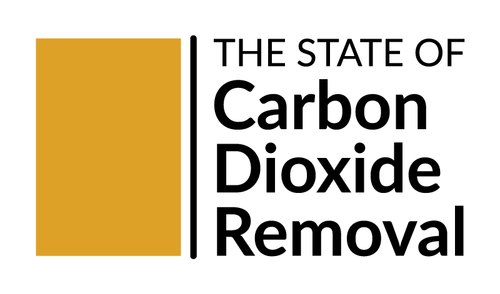
REPORT LAUNCH:
The State of Carbon Dioxide Removal
We are pleased to share the 1st edition of our report!
Why not join us for the report’s launch event?
Thursday 19 January, 16.00-17.30 GMT
December 14, 2022
American Geophysical Union
Advancing Earth and Space Science
Chicago, IL, USA
December 12-16, 2022
To: AGU attendees, in-person and online
AGU Town Hall
to consider the past and future of IIASA on its 50th Anniversary
Please join us on Wednesday 14 December at 6:30-7:30 CST in McCormick Place – S106b for an AGU Town Hall to celebrate IIASA’s 50th Anniversary, International Cooperation for Global Challenges: IIASA’s 50 Years of Building Scientific Bridges Between Nations. (The hybrid session will be available HERE for online participants who are registered for AGU 2022).
The Town Hall will consist of 2 panels of short presentations by IIASA alumni and collaborators, each followed by discussion with audience participation. Each talk will draw on the speaker’s experience with IIASA, collectively highlighting the contributions that IIASA has offered to global scientific cooperation and progress, as well as to individuals’ professional development. Discussion will focus on how this unique international institution can most effectively continue to contribute to solutions for the global problems of the 21st Century.
We encourage attendance by the IIASA community of researchers, alumni and collaborators, as well as anyone who is curious to learn more about the Institution and its work.
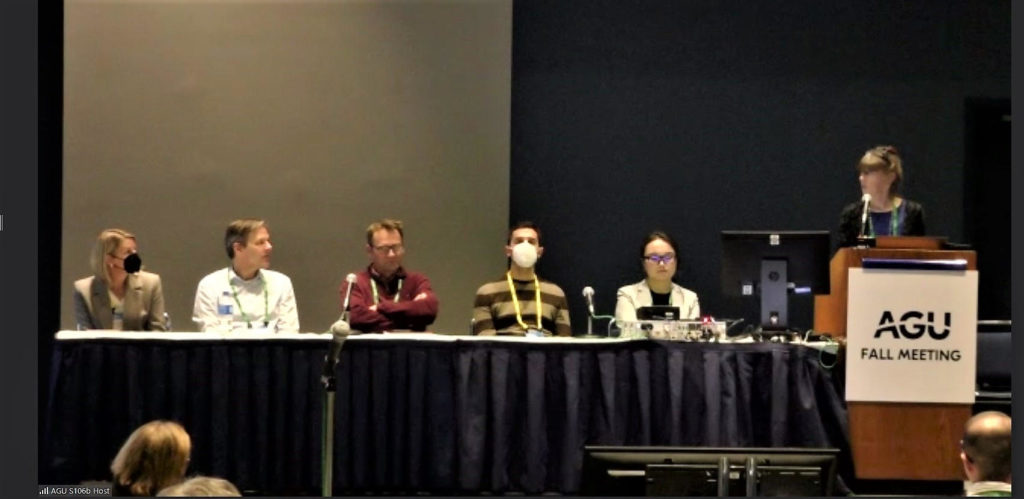
Participants:
Moderator: Margaret Goud Collins, Friends of IIASA
Panel 1:
Brian O’Neill, Joint Global Change Research Institute, College Park, MD (YSSP 1998; IIASA Project Leader, 2005-2009)
Cynthia Rosenzweig, NASA GISS, New York, NY (IIASA Visiting Scientist, 1997)
Allison Steiner, University of Michigan, Ann Arbor (YSSP 2000)
Panel 2:
Jim Hall, University of Oxford (Chair, IIASA Science Advisory Committee)
Gesang Yangji, University of Wisconsin, Madison (YSSP 2022)
Vijay LiMaye, Natural Resources Defense Council (YSSP 2012)
The International Institute for Applied Systems Analysis (IIASA) was founded in 1972 near Vienna, Austria, a Cold War research institution where scientists from Eastern and Western Bloc nations could meet to collaborate on research relevant to the problems facing the industrialized world. It is a non-governmental institution supported by governments, using mathematics and systems approaches to understand and develop solutions to complex societal issues, such as energy, climate, risk, land use, food, air pollution, migration, and water resources.
Since 1977, over 2500 doctoral candidates from around the world have spent a summer doing research in Austria as part of IIASA’s Young Scientists Summer Program (YSSP). This program broadened both their professional networks and their intellectual horizons. YSSP applications for summer 2023 are being accepted until 12 January 2023; more information on applying can be found here. Potential applicants are encouraged to come to the Town Hall to learn more about the program!
The session is co-organized by the US Committee for IIASA of the National Academy of Sciences and the Friends of IIASA.
Wednesday, 14 December at 6:30-7:30 CST
Coverage:
Moderator: Margaret Goud Collins, Friends of IIASA
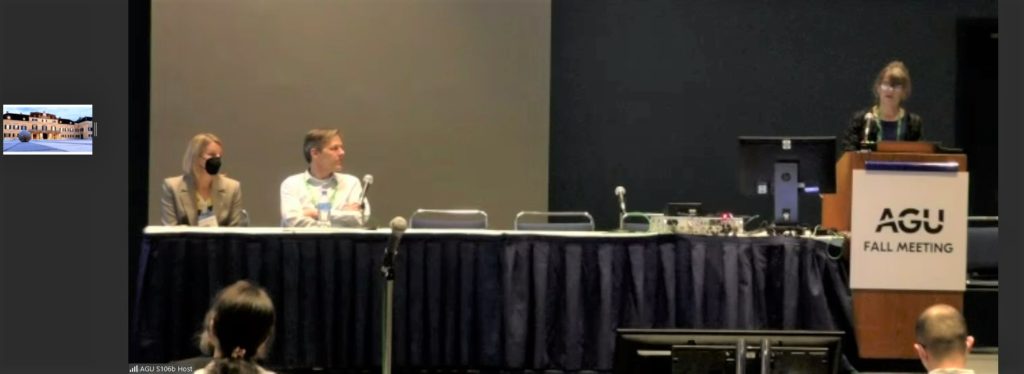
Panel 1:
Brian O’Neill, Joint Global Change Research Institute, College Park, MD (YSSP 1998; IIASA Project Leader, 2005-2009)
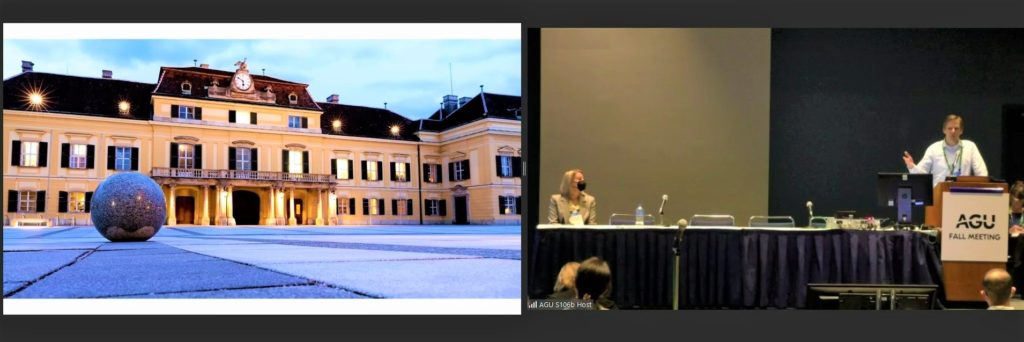
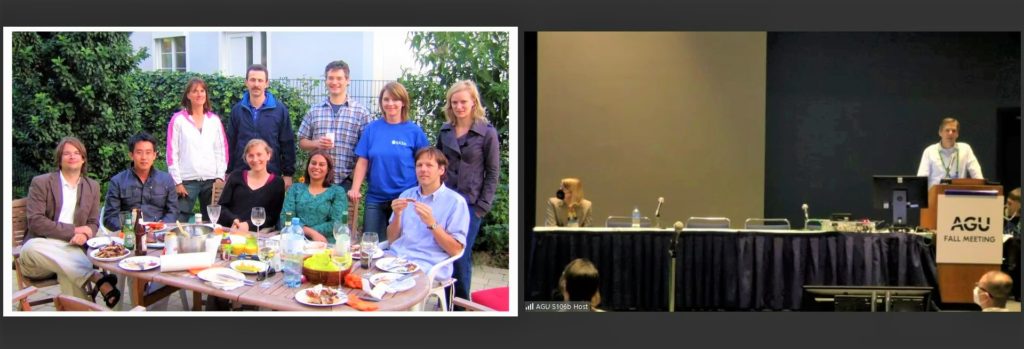
Allison Steiner, University of Michigan, Ann Arbor (YSSP 2000)
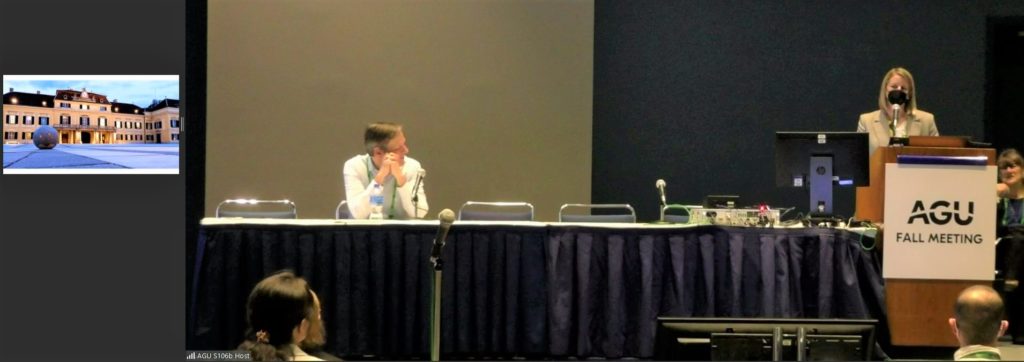
Discussion
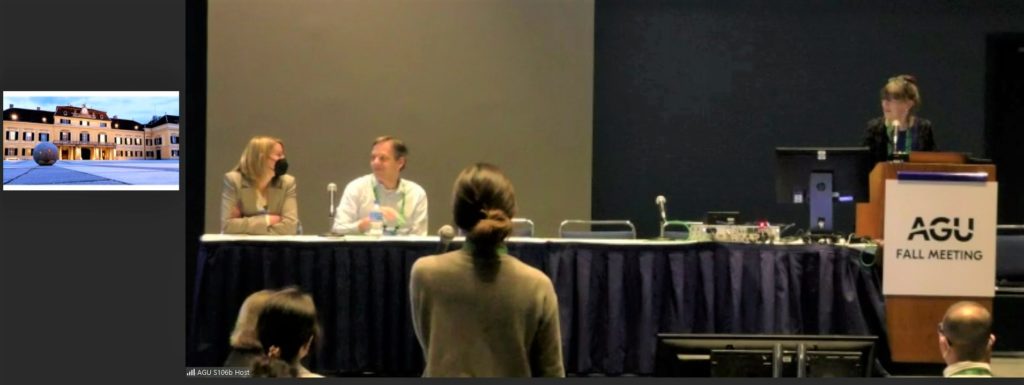
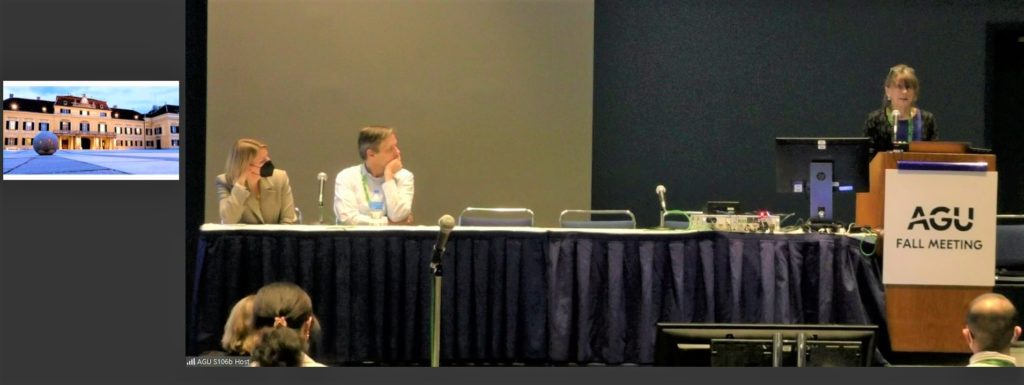

Panel 2:
Jim Hall, University of Oxford (Chair, IIASA Science Advisory Committee)

Gesang Yangji, University of Wisconsin, Madison (YSSP 2022)
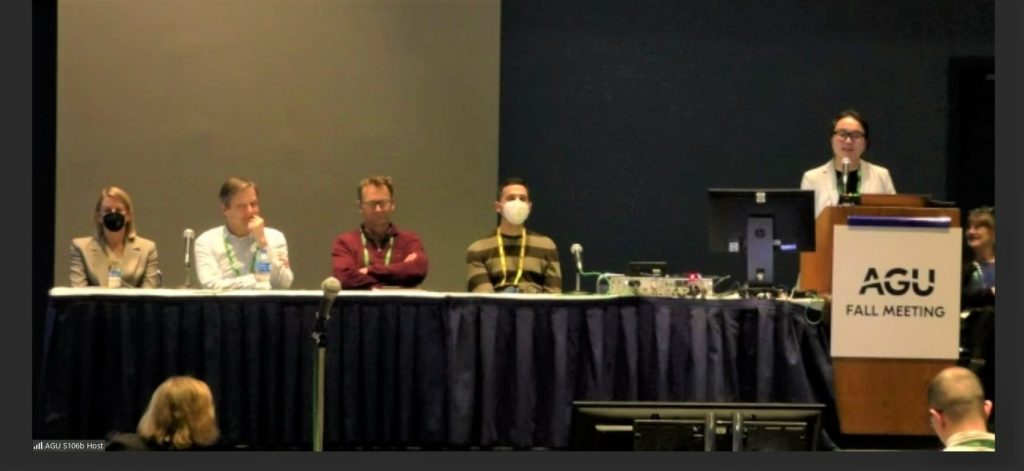
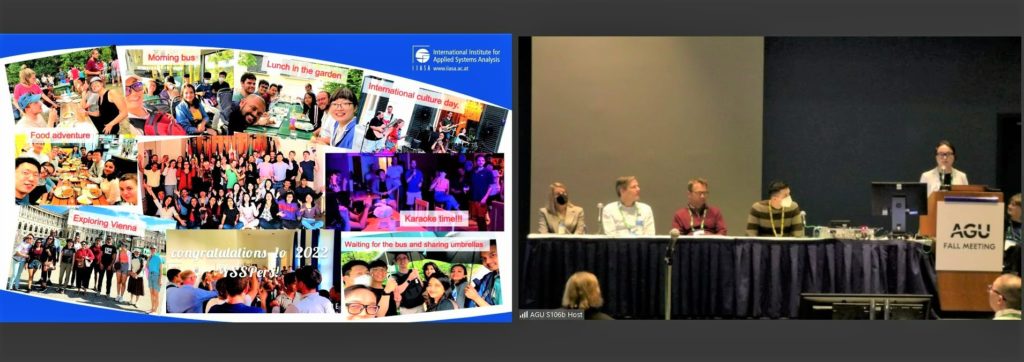
Vijay LiMaye, Natural Resources Defense Council (YSSP 2012)
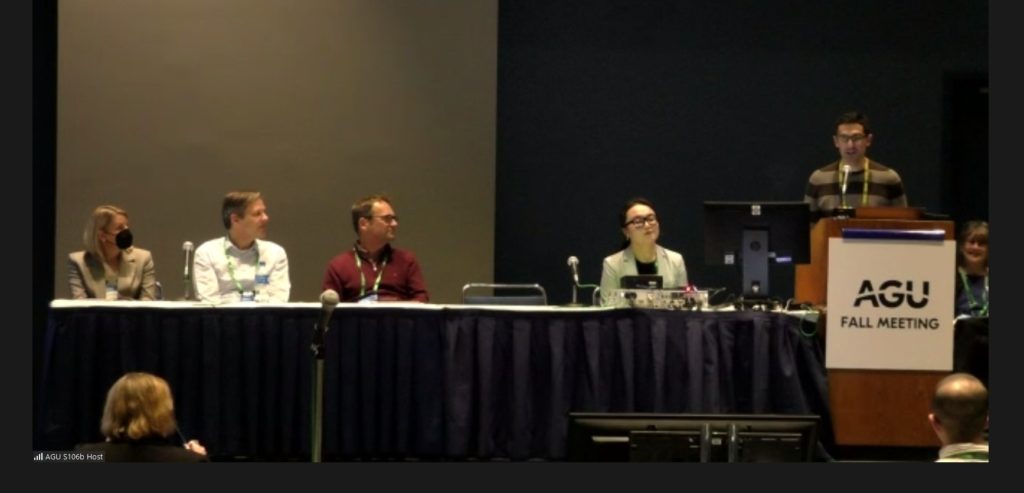
Town Hall Discussion
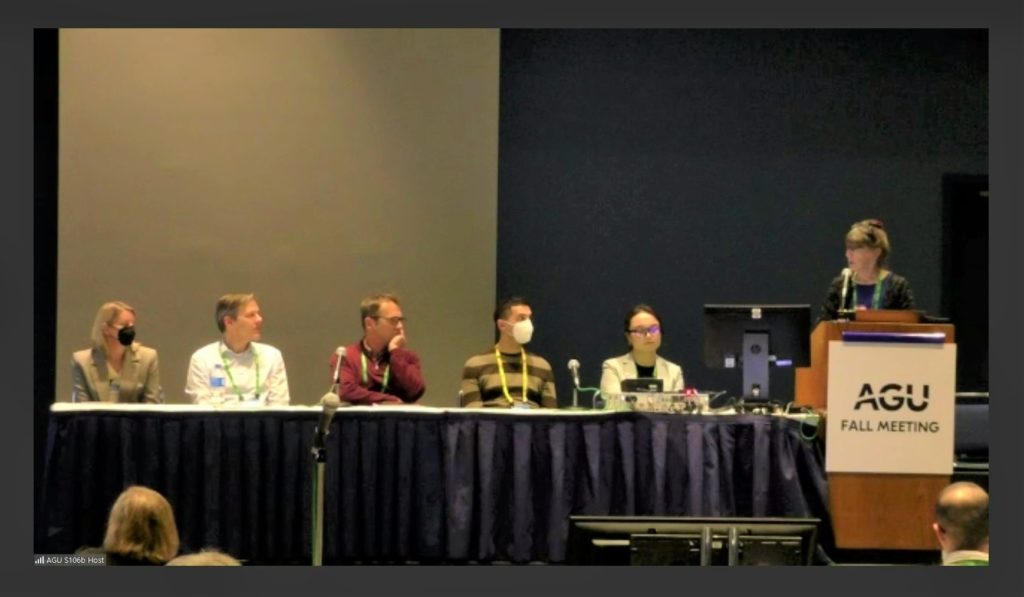
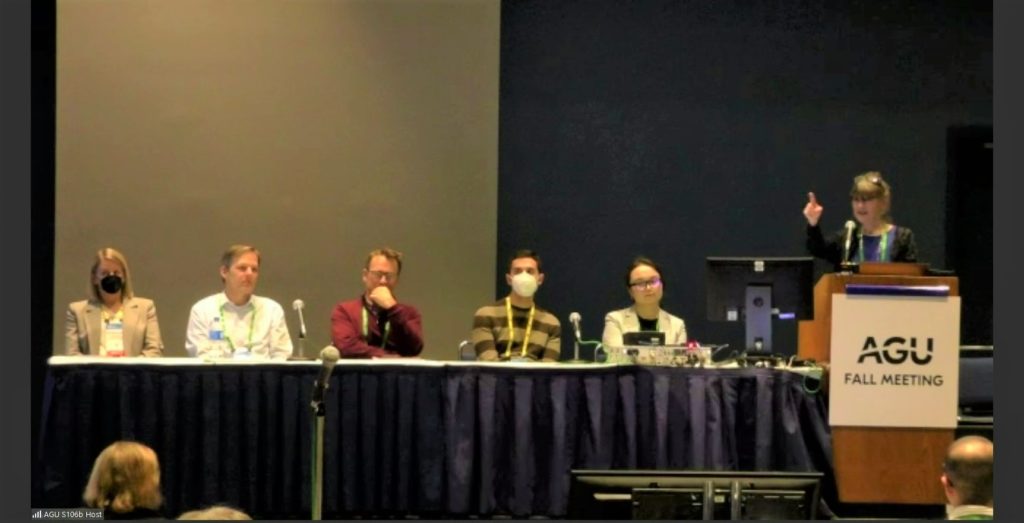
Past:
November 16-17, 2022
Systems Analysis for Reducing Footprints and Enhancing Resilience
IIASA Laxenburg, Austria & Online
November 16-17, 2022
November 8, 2022
Integrated Assessment Modeling Consortium (IAMC)
November 8, 2022
May 26, 2022
IIASA 50th Anniversary start
International Cooperation for Global Challenges: 50 Years of Building Research Bridges at IIASA
May 26, 2022
Co-sponsored by the National Academy of Sciences US Committee for IIASA, Friends of IIASA & IIASA
Hosted by the Boston University Pardee School of Global Studies

Venue: BU Questrom School of Business Executive Leadership Center, 595 Commonwealth Ave, 4th floor
Reception: BU Pardee School of Global Studies, 121 Bay State Road
AGENDA
9:00-10:00 Why International Research Cooperation? Why IIASA?
Welcome: Adil Najam (Dean, BU Pardee School of Global Studies)
Origins of IIASA and YSSP: Roger Levien (IIASA Director, 1975-1981)
IIASA in the 21st Century: Albert van Jaarsveld (IIASA Director General)
10:00-10:30 “Decisions for the Decade” Game: Pablo Suarez (YSSP 2002, Red Cross Climate Centre)
10:45-11:30 Pathways to Energy Justice and Energy Sustainability
Moderator: Mark Hanson (YSSP 1977; Hoffman Planning & Design)
Benjamin Leibowicz (YSSP 2013; University of TX Austin): My climate change mitigation research at IIASA: Past and present
Narasimha Rao (IIASA postdoc 2011-13; Yale School of the Environment): Deepening equity in IIASA’s climate research
Gurneeta Vasudeva Singh (YSSP 2004; Univ. of MN Carlson School of Management): Navigating ecosystem bottlenecks for electric vehicle commercialization: Taking a systems approach
11:30-12:15 Systems Analysis for Food and Water Security
Moderator: Natalia Fath (YSSP 1997, Towson University)
Carl Boettiger (YSSP 2009, University of CA, Berkeley): Will algorithms save the planet and will we regret it when they do?
Jessica Gephart (YSSP 2014, American University): Shocks to global seafood supply chains
12:15-12:20 Introduction to the Raiffa Center Initiative
Speakers: Margaret Goud Collins (Friends of IIASA; Howard Raiffa Center Initiative)
Judy Raiffa (Howard Raiffa Center Initiative Founder)
12:20-1:30 Working Lunch: Considering the Raiffa Center
Moderated lunch table discussions on Raiffa Center structure, membership, topics
Discussion leaders: Mark Thompson (IIASA 1973-75; Equity Resources Group)
Jeff Keisler (Raiffa student during early 90s; Univ. of Massachusetts Boston)
José Siri (IIASA Postdoc 2009-2012; Consultant, WHO & World Bank)
Paul Arthur Berkman (IIASA Arctic Initiative, Science diplomat; Tufts & Harvard Univ.)
1:30-1:45 Celebrating 50 Years of IIASA: Jeffrey Sachs (virtual presentation) (Columbia University)
1:45-2:30 Pathways to Global Health Moderator: Margaret Goud Collins (Friends of IIASA)
Michael Stoto (YSSP 1977; Georgetown University, Harvard University): COVID-19: A global health systems perspective
José Siri (IIASA Postdoc 2009-2012; Consultant, WHO & World Bank): The role of systems thinking in expanding conceptions of health
2:30-3:30 Lightning talks by YSSP Fellows: 9 short talks by YSSP alumni, on how their work at IIASA affected their careers
Moderator: Brian Fath (YSSP 1997, DYN; YSSP Science Coordinator; Towson University)
YSSP Alumni: Andrew Foster (YSSP 1985, POP; Brown University): Risk and child investment
Hélène Benveniste (YSSP 2019, POP; Harvard University): The use of scenarios for climate migration research
James McNerney (YSSP 2008, TNT; Harvard University): Production networks and economic growth
Yingjie Li (YSSP 2021, ASA; Michigan State University): International spillovers on achieving national SDGs
Noah E. Gotbaum (YSSP 1988, PIN; New Spirit Capital, LLC): The direct link between Russia’s faulty economic transformation & its Ukraine invasion
Robert Barron (YSSP 2014, ENE; Western New England University): Getting the MESSAGE out: Climate science and local stakeholders
Natalia Fath (YSSP 1997, LUC; Towson University): Applying YSSP experience from land use/cover change to teaching/researching environmental geography
Radost Stanimirova (YSSP 2017, ESM; Boston University): Using remote sensing to monitor land degradation
Mark Hanson (YSSP 1977, REN; Hoffman Planning & Design): IIASA making a difference
Alex Nutkiewicz (YSSP 2019, ENE; Stanford University): Cross-national perspectives on heat stress in the urban built environment
3:45-5:00 Global Challenges for the 21st Century
Panel presentation/discussion of key global challenges, the information/analysis needed for informed development of solutions, and IIASA’s role as a center of science diplomacy with a heritage of building research bridges between nations.
Opening Remarks/Moderator: Adil Najam (YSSP 1995; Dean, BU Pardee School of Global Studies)
Panelist respondents: Bill Colglazier (AAAS Center for Science Diplomacy)
Albert van Jaarsveld (IIASA Director General)
5:00-5:20 Closing: Moderator: Margaret Goud Collins
Roger Levien (IIASA Director, 1975-1981)
Albert van Jaarsveld (IIASA Director General)
5:30- 6:30 Reception at Pardee School of Global Studies

International Cooperation for Global Challenges: 50 Years of Building Research Bridges at IIASA
May 26, 2022
Co-sponsored by the National Academy of Sciences US Committee for IIASA, Friends of IIASA, & IIASA
Hosted by the Boston University Pardee School of Global Studies
Venue: BU Questrom School of Business Executive Leadership Center, 595 Commonwealth Ave, 4th floor
Reception: BU Pardee School of Global Studies, 121 Bay State Road
AGENDA
8:30-9:00 Coffee and continental breakfast
9:00-10:00 Why International Research Cooperation? Why IIASA?
Welcome Adil Najam (Dean, BU Pardee School of Global Studies)
Origins of IIASA and YSSP Roger Levien (IIASA Director, 1975-1981)
IIASA in the 21st Century Albert van Jaarsveld (IIASA Director General)
10:00-10:30 “Decisions for the Decade” Game Pablo Suarez (YSSP 2002, Red Cross Climate Centre)
10:30-10:45 Break
10:45-11:30 Pathways to Energy Justice and Energy Sustainability
Moderator: Mark Hanson (YSSP 1977; Hoffman Planning & Design)
Benjamin Leibowicz (YSSP 2013; University of TX Austin)
My climate change mitigation research at IIASA: Past and present
Narasimha Rao (IIASA postdoc 2011-13; Yale School of the Environment)
Deepening equity in IIASA’s climate research
Gurneeta Vasudeva Singh (YSSP 2004; Univ. of MN Carlson School of Management)
Navigating ecosystem bottlenecks for electric vehicle commercialization: Taking a systems approach
11:30-12:15 Systems Analysis for Food and Water Security
Moderator: Natalia Fath (YSSP 1997, Towson University)
Carl Boettiger (YSSP 2009, University of CA, Berkeley)
Will algorithms save the planet and will we regret it when they do?
Jessica Gephart (YSSP 2014, American University)
Shocks to global seafood supply chains
12:15-12:20 Introduction to the Raiffa Center Initiative
Speakers: Margaret Goud Collins (Friends of IIASA; Howard Raiffa Center Initiative)
Judy Raiffa (Howard Raiffa Center Initiative Founder)
12:20-1:30 Working Lunch: Considering the Raiffa Center
Moderated lunch table discussions on Raiffa Center structure, membership, topics
Discussion leaders: Mark Thompson (IIASA 1973-75; Equity Resources Group)
Jeff Keisler (Raiffa student during early 90s; Univ. of Massachusetts Boston)
José Siri (IIASA Postdoc 2009-2012; Consultant, WHO & World Bank)
Paul Arthur Berkman (IIASA Arctic Initiative, Science diplomat; Tufts & Harvard Univ.)
1:30-1:45 Celebrating 50 Years of IIASA Jeffrey Sachs (virtual presentation) (Columbia Univ.)
1:45-2:30 Pathways to Global Health Moderator: Margaret Goud Collins (Friends of IIASA)
Michael Stoto (YSSP 1977; Georgetown University, Harvard University)
COVID-19: A global health systems perspective
José Siri (IIASA Postdoc 2009-2012; Consultant, WHO & World Bank)
The role of systems thinking in expanding conceptions of health
2:30-3:30 Lightning talks by YSSP Fellows
Moderator: Brian Fath (YSSP 1997, DYN; YSSP Science Coordinator; Towson University)
YSSP Alumni: Andrew Foster (YSSP 1985, POP; Brown University)
Risk and child investment
Hélène Benveniste (YSSP 2019, POP; Harvard University)
The use of scenarios for climate migration research
James McNerney (YSSP 2008, TNT; Harvard University)
Production networks and economic growth
Yingjie Li (YSSP 2021, ASA; Michigan State University)
International spillovers on achieving national SDGs
Noah E. Gotbaum (YSSP 1988, PIN; New Spirit Capital, LLC)
The direct link between Russia’s faulty economic transformation & its Ukraine invasion
Robert Barron (YSSP 2014, ENE; Western New England University)
Getting the MESSAGE out: Climate science and local stakeholders
Natalia Fath (YSSP 1997, LUC; Towson University)
Applying YSSP experience from land use/cover change to teaching/researching
environmental geography
Radost Stanimirova (YSSP 2017, ESM; Boston University)
Using remote sensing to monitor land degradation
Mark Hanson (YSSP 1977, REN; Hoffman Planning & Design)
IIASA making a difference
Alex Nutkiewicz (YSSP 2019, ENE; Stanford University)
Cross-national perspectives on heat stress in the urban built environment
3:30-3:45 Break
3:45-5:00 Global Challenges for the 21st Century
Panel presentation/discussion of key global challenges, the information/analysis needed for informed development of solutions, and IIASA’s role as a center of science diplomacy with a heritage of building research bridges between nations.
Opening Remarks/Moderator: Adil Najam (YSSP 1995; Dean, BU Pardee School of Global Studies)
Panelist respondents: Bill Colglazier (AAAS Center for Science Diplomacy)
Eileen Babbitt (YSSP 1985; Tufts Fletcher School)
Albert van Jaarsveld (IIASA Director General)
5:00-5:15 Wrap-up Roger Levien and Albert van Jaarsveld
5:15-5:20 Closing Margaret Goud Collins
5:30- 6:30 Reception at Pardee School of Global Studies
Speaker bios and affiliations
Eileen Babbitt (Tufts Fletcher School of Law and Diplomacy)
Eileen has extensive experience in both academia and practice in international conflict management. Her research interests include identity-based conflicts, coexistence and trust-building in the aftermath of civil war, and the interface between human rights concerns and peacebuilding. Her practice as a facilitator and trainer has included work in the Middle East, the Balkans, and with the United Nations, U.S. government agencies, regional inter-governmental organizations, and international and local NGOs. Professor Babbitt holds a PhD from MIT and a Master’s Degree in Public Policy from the Kennedy School of Government at Harvard University, where she was a mentee of Howard Raiffa via its Program on Negotiation.
Kathie Bailey (National Academy of Sciences)
Kathie joined the National Academies in 2005, and since 2008 has led the Academies’ Board overseeing organizations promoting international scientific cooperation. Previously she worked for the Association for American Universities and for a member of the U.S. House of Representatives. She holds a JD in law from Tulane University.
Robert W. Barron (Western New England University)
Robert Barron is an Assistant Professor of Industrial Engineering at Western New England University. His research focuses on local-scale problems in the Water-Energy-Food-Nexus, including assessing renewably powered, local-scale ammonia production and water treatment systems for Small Town and Rural (STAR) agricultural communities and developing decision support tools for local-scale stakeholders facing climate change adaptation decisions.
Hélène Benveniste (Harvard University)
Hélène Benveniste is a postdoctoral Environmental Fellow at the Harvard University Center for the Environment, based at the Harvard Kennedy School of Government. She broadly works in environmental policy, with specific focus on human migration and climate change, as well as global environmental governance. Hélène received her PhD in Science, Technology and Environmental Policy at Princeton University’s School of Public and International Affairs.
Paul Arthur Berkman (Tufts University, Harvard University)
Professor Paul Arthur Berkman is a science diplomat, applying, training and refining informed decisionmaking to balance national interests and common interests for the benefit of all on Earth across generations. As a Fulbright Distinguished Scholar, Paul chaired the Antarctic Treaty Summit at the Smithsonian Institution, resulting in the first book on SCIENCE DIPLOMACY as well as a Congressional Resolution adopted with unanimous consent by the United States House of Representatives and United States Senate. He co-directed the first formal dialogue between NATO and Russia regarding ENVIRONMENTAL SECURITY IN THE ARCTIC OCEAN, which became the title of an edited book with over 75,000 downloads. Prof. Berkman joined Tufts University from 2015-2020 at the Fletcher School of Law and Diplomacy, where he founded the first Science Diplomacy Center in the world in an academic institution. He directed the Arctic Futures Initiative at the International Institute for Applied Systems Analysis (IIASA). In 2021, Paul became Director (from Boston) of the Science Diplomacy Center at MGIMO University in Moscow, creating a unique position to build common interests among allies and adversaries alike. This objective has been explicit throughout his coordinating the Arctic Options / Pan-Arctic Options projects from 2013-2022 with support from national science agencies in the United States, Russian Federation, Norway, France, China and Canada. Prof. Berkman is a Faculty Associate with the Program on Negotiation (PON) at Harvard Law School and Associate Director of Science Diplomacy in the Harvard-MIT Public Disputes Program as well as an Associated Fellow with the United Nations Institute for Training and Research (UNITAR), training science diplomacy and informed decisionmaking with the diplomatic corps of many foreign ministries as well as next-generation leaders inclusively. For his international, interdisciplinary and inclusive contributions, Prof. Berkman has been honoured with awards in the United States, United Kingdom, Switzerland, Russian Federation, Norway, New Zealand and Japan. The United States Department of State and Norwegian Ministry of Foreign Affairs awarded Paul the Fulbright Arctic Chair 2021- 2022.
Carl Boettiger (UC Berkeley)
Carl Boettiger is an assistant professor of Ecoinformatics in the department of Environmental Science, Policy and Management at UC Berkeley. He is a theoretical ecologist whose research focuses on the role of uncertainty in modeling and decision making. He is passionate about data science education and open science practice, and has been closely involved in the creation of the data science major at UC Berkeley. He is a National Science Foundation (NSF) CAREER fellow and Early Career Fellow by the Ecological Society of America and an associate editor at Ecology Letters. Carl is a co-founder of the rOpenSci project, a senior fellow at the Berkeley Institute for Data Science (BIDS), and a faculty advisor to the Eric and Wendy Schmidt Center for Data Science and the Environment at Berkeley. He holds a A.B. in Physics from Princeton University and a PhD in Population Biology from the University of California, Davis.
E. William Colglazier (American Association for the Advancement of Science)
Bill Colglazier served as the fourth Science and Technology Adviser to the Secretary of State from 2011 to 2014 to provide scientific and technical expertise and advice in support of the development and implementation of U.S. foreign policy. From 1994 to 2011, he was Executive Officer of the U.S. National Academy of Sciences (NAS) and the National Research Council (NRC) where he helped to oversee the studies that provide independent, objective scientific advice on domestic and international public policy issues.
Brian D. Fath (Towson University)
Brian D. Fath is a Professor in the Department of Biological Sciences at Towson University (Maryland, USA) teaching courses on Ecosystem Ecology, Environmental Science, and Human Ecology. He is also a Senior Research Scholar at the International Institute for Applied Systems Analysis and since 2011, the Scientific Coordinator of IIASA’ s Young Scientists Summer Program. He has published over 200 research papers, reports, and book chapters on environmental systems modeling, specifically in the areas of network analysis, urban metabolism, and sustainability. He co-authored, among others, the books A New Ecology: Systems Perspective (2020), Foundations for Sustainability: A Coherent Framework of Life–Environment Relations (2019), and Flourishing within Limits to Growth: Following Nature’s Way (2015). He served as Editor for 6-volume Handbook of Environmental Management (2020) and 4-volume Encyclopedia of Ecology (2019). Dr. Fath is also Editor-in-Chief for the journal Current Research in Environmental Sustainability and past Editor in Chief of Ecological Modelling (2009 – 2020). He was the 2016 recipient of the Prigogine Medal for outstanding work in systems ecology and twice a Fulbright Distinguished Chair (Parthenope University, Naples, Italy, in 2012 and Masaryk University, Czech Republic, in 2019).
Natalia Fath (Towson University)
Natalia Fath is a full-time lecturer at Maryland’s Towson University in the Geography and Environmental Planning Department. She received her Ph.D. in Geography from Moscow State University. At Towson, she teaches a variety of courses such as Environmental Geography, Geography of Europe, Geography of Russia, as well as special seminar courses such as “Earth’s Changing Climate”, “Green Eating on a Blue Planet”, and “Climate Change and Security”. She has also led a study abroad course in Prague multiple times over the past decade. Her interests lie in the research and projects that promote greener cities. In particular, the intersection of urban farming and student community service projects. Other teaching and research interests include the implication of natural resource exploitation, landscape responses to climate change, and other land use/land cover changes.
Andrew Foster (Brown University)
Andrew Foster is the George and Nancy Parker Professor of Economics at Brown University. He is an Applied Microeconomist with interests in development, population, and the environment. Recent work considers the role played by labor market transaction costs and machine capacity in determining scale economies in agriculture and the effects of environmental risk on human capital investment.
Jessica Gephart (American University)
Jessica Gephart is an Assistant Professor in Environmental Science at American University. Dr. Gephart received her PhD in Environmental Science from the University of Virginia and completed a postdoctoral fellowship at the National Socio-Environmental Synthesis Center. Her research focuses on the intersection of seafood globalization and environmental change, evaluating how seafood trade drives distant environmental impacts, as well as how environmental shocks disrupt seafood trade. Her work brings together global trade data, local consumption data, and environmental impact data to understand the opportunities and risks of seafood globalization for sustainable production and food security.
Noah Eliot Gotbaum (New Spirit Capital)
Noah Eliot Gotbaum is Managing Member of New Spirit Capital, an investment and fundraising company for new/emerging markets and impact/ESG investments. Previously, Noah spent some 25 years as a consultant to Governments and businesses, and as an investor, in the transforming economic markets in Central and Eastern Europe and the Former Soviet Union. Following his time at IIASA in 1988 and the fall of the Berlin Wall, Noah co-founded and was a Senior Partner at the Central Europe Trust Company, a strategy consulting firm dedicated to the Post-Soviet markets. In 1998 he was appointed to the President and Chief Investment Officer of the PBO New Europe Property Fund, a US Government-backed (OPIC) investment fund dedicated to the redevelopment of major cities in the former East Bloc. After leading European Corporate Strategy for the Nasdaq-listed technology company, Level 3 Communications – and following the Orange Revolution in Ukraine – Noah then founded New Spirit Capital, which initially raised and invested European and US institutional funds for newly privatized Ukrainian companies. Noah has also held a number of leadership roles in US and European private, public and non-profit organizations, and is the Founder of the New York Cares volunteer organization. Noah holds a BA in Political Science from Amherst College, and an MBA from the Yale School of Management. In addition to his IIASA YSSP Fellowship, Noah has received research and leadership Fellowships from the Robert Bosch Foundation in Germany, The Coro Foundation in Los Angeles, and from Brown and New York Universities.
Margaret Goud Collins (Friends of IIASA)
Since 1997, IIASA has been a central element of Maggie’s career at the intersection of science and policy. She served as Program Director for the U.S. Committee for IIASA from 1997-2012, at both the American Academy of Arts and Sciences and the NAS, and served as the IIASA Secretary from 2012-2016. She previously worked for the Senate Environment and Public Works Committee, the U.S. Geological Survey, and the NOAA Chief Scientist, as well as the University of the Philippines. Dr. Goud Collins holds degrees in geology and oceanography from Stanford and the MIT/WHOI Joint Program in Oceanography. She was elected an AAAS Fellow in 2008 in Section X: Societal Impacts of Science and Engineering.
Mark Hanson (Hoffman Planning, Design & Construction)
Mark Hanson is Hoffman Planning Design & Construction’s Director of Sustainable Services. Mark’s work focuses on integrated design and project delivery, daylighting and lighting design, coordination of energy modeling and commissioning, HVAC systems review, renewable energy, and monitoring and verification. A Leadership in Energy and Environmental Design (LEED®) Accredited Professional, Mark has participated in 18 LEED certified projects with three at Platinum and five at Gold certification. A founding board member of the Wisconsin Green Building Alliance, the Midwest Energy Efficiency Alliance, and past co-chair of the Wisconsin Green Schools Committee, Mark served as Executive Director of the Energy Center of Wisconsin from 1994-2001 prior to joining Hoffman. Mark received his Bachelor of Arts in Economics from Harvard and his Masters in Water Resource Management from the University of Wisconsin-Madison, as well as his Doctorate in Environmental Studies.
Jeff Keisler (University of Massachusetts Boston)
Professor Jeff Keisler has been a consultant to numerous Fortune 100 companies and government agencies independently and, prior to joining University of Massachusetts Boston as a Professor of Management Information Systems, a decision analyst at Strategic Decisions Group, Inc., Argonne National Laboratory, and General Motors Corp. He has published more than 70 articles in peer reviewed journals.
Benjamin D. Leibowicz (The University of Texas at Austin)
Dr. Benjamin D. Leibowicz is an Assistant Professor in the Operations Research and Industrial Engineering graduate program at The University of Texas at Austin. The program is administered through the Department of Mechanical Engineering. Dr. Leibowicz holds a courtesy appointment in the Lyndon B. Johnson School of Public Affairs, and also supervises student research in the Energy and Earth Resources graduate program. Dr. Leibowicz develops mathematical models to improve decision-making on energy and environmental policy and strategy. His primary research interests are energy systems, energy and climate policy analysis, integrated assessment modeling, technological change, and sustainable cities. He approaches these topics from an interdisciplinary perspective and develops modeling frameworks that combine methods from optimization, systems analysis, economic modeling, game theory, and stochastic control. Dr. Leibowicz’s research projects are funded by federal agencies, industrial corporations, private foundations, and national laboratories, among others. He has published in many of the leading journals in his research areas including The Energy Journal, Energy Economics, Energy Policy, European Journal of Operational Research, Risk Analysis, IEEE Transactions on Smart Grid, and Research Policy. Prior to joining UT Austin, Dr. Leibowicz received both PhD and MS degrees in Management Science and Engineering from Stanford University, and earned a BA in Physics with a minor in Economics from Harvard University. While working toward his PhD, he was a research fellow in the Energy and Transitions to New Technologies programs at the International Institute for Applied Systems Analysis.
Roger E. Levien (Friends of IIASA)
After returning from IIASA, Roger served as Vice President for Strategy at Xerox. Prior to joining IIASA he held senior management positions at The RAND Corporation in Santa Monica and Washington. He earned a PhD in Applied Mathematics (Computer Science) from Harvard and a BS in Engineering from Swarthmore College. He is a member of the Connecticut Academy of Science and Engineering. The Austrian Government awarded him the Ehrenkreuz First Class for his IIASA service.
Yingjie Li (Michigan State University)
Yingjie is a Ph.D. Candidate in the Center for Systems Integration and Sustainability at Michigan State University. His research focuses on understanding how coupled human and natural systems interact over distances (aka, telecouplings) and shape global sustainable development. His recent research topics include ecosystem service flows, international trade, land-food-energy-water nexus, and SDGs. He will join the Natural Capital Project and Woods Institute for the Environment at Stanford as a postdoc scholar in Fall 2022.
James McNerney (Harvard University)
James McNerney is a Research Scientist in the Growth Lab at Harvard University. His research studies the processes by which technologies change and how this leads to performance improvements, adoption, environmental impacts, and macroeconomic outcomes of growth and structural change. He frequently uses network models or models based in engineering to describe and examine these processes. Previously he was a Research Scientist and Leading Technology and Policy Fellow at the Institute for Data, Systems and Society at MIT, and a graduate fellow at the Santa Fe Institute and Boston University, where he earned a PhD in physics.
Adil Najam (Boston University)
Adil is a leader in global cooperation for bridging the science-policy gap, with expertise spanning the fields of international negotiation, sustainable development, human development and human security, international environmental politics, and politics of South Asia. He serves on the Boards of numerous international NGOs, including WWF International, The Asia Foundation, and the Luc Hoffman Institute. Previously he held positions of as Vice Chancellor of the Lahore University of Management Sciences (LUMS) in Lahore, Pakistan and as the Director of the BU Pardee Center for the Study of the Longer-Range Future. He hosted a comprehensive, well-edited 2020 series of “World After Coronavirus” conversations. Dr. Najam holds degrees in civil engineering and policy from MIT (where Howard Raiffa served on his thesis committee).
Alex Nutkiewicz (Stanford University, Buro Happold New York City)
Alex Nutkiewicz is a Consultant in the Cities practice at Buro Happold in New York City. Her work focuses on the design of low-carbon district energy systems and urban infrastructure for cities globally. She recently completed her PhD in Civil & Environmental Engineering at Stanford University, where her research explored the integration of physical and data-driven modeling techniques to understand building energy performance and improve urban energy efficiency.
Narasimha D. Rao (Yale University)
Dr. Narasimha D. Rao is an Associate Professor of Energy Systems at the Yale School of the Environment. He also serves as a Senior Research Scholar at the International Institute for Applied Systems Analysis. Dr. Rao’s research examines energy systems, climate change and human well-being. He is a contributing author to the IPCC’s Sixth Assessment Report. He was a recipient of the European Research Council (ERC) Starting Grant for a project entitled Decent Living Energy – which examines the energy and climate impacts of poverty eradication around the world. He received his PhD from Stanford University in Environment and Resources, and Masters degrees in Technology Policy and Electrical Engineering from the Massachusetts Institute of Technology in the US.
Jeffrey D. Sachs (Columbia University)
Jeffrey D. Sachs is a world-renowned economics professor, bestselling author, innovative educator, and global leader in sustainable development. He is widely recognized for bold and effective strategies to address complex challenges including the escape from extreme poverty, the global battle against human-induced climate change, international debt and financial crises, national economic reforms, and the control of pandemic and epidemic diseases. Sachs serves as the Director of the Center for Sustainable Development at Columbia University, where he holds the rank of University Professor, the university’s highest academic rank. Sachs held the position of Director of the Earth Institute at Columbia University from 2002 to 2016. He is President of the UN Sustainable Development Solutions Network, Chair of the Lancet COVID-19 Commission, Co-Chair of the UN Council of Engineers for the Energy Transition, Commissioner of the UN Broadband Commission for Development, Tan Sri Jeffrey Cheah Honorary Distinguished Professor of Sustainable Development at Sunway University, academician of the Pontifical Academy of Social Sciences at the Vatican, and an SDG Advocate for UN Secretary General António Guterres. From 2001-18, Sachs served as Special Advisor to UN Secretaries-General Kofi Annan (2001-7), Ban Ki-moon (2008-16), and António Guterres (2017-18). Sachs has authored and edited numerous books, including three New York Times bestsellers: The End of Poverty (2005), Common Wealth: Economics for a Crowded Planet (2008), and The Price of Civilization (2011). Other books include To Move the World: JFK’s Quest for Peace (2013), The Age of Sustainable Development (2015), Building the New American Economy: Smart, Fair & Sustainable (2017), A New Foreign Policy: Beyond American Exceptionalism (2018), and most recently, The Ages of Globalization: Geography, Technology, and Institutions (2020). Prior to joining Columbia, Sachs spent over twenty years as a professor at Harvard University, most recently as the Galen L. Stone Professor of International Trade. A native of Detroit, Michigan, Sachs received his B.A., M.A., and Ph.D. degrees at Harvard.
José Siri (WHO & World Bank)
José Siri is an epidemiologist and urban specialist. Over a career in research and policy, he has developed and applied systems approaches to urban and planetary health, focusing on leveraging science for healthy development, devising simple systems tools to catalyze better decision-making, and improving understanding of complex challenges. His experience, which spans five continents, includes time as a post-doc and researcher at IIASA, with the United Nations University International Institute for Global Health, and with the Wellcome Trust, along with extensive engagement with researchers, practitioners, and policymakers. He currently consults for the World Bank and the World Health Organization and serves in various capacities with the Inter-American Institute for Global Change Research, Future Earth, the International Society for Urban Health, the World Economic Forum, and a variety of urban and planetary health research projects. His work has touched on urban studies, climate and health, sustainable development, systems thinking, transdisciplinarity, epidemiology, ecology, infectious disease, public health, and malaria control.
Radost Stanimirova (Boston University)
Radost Stanimirova is a Postdoctoral Researcher in the Department of Earth and Environment at Boston University. Her research interests include climate variability and human transformation of the landscape, especially through agriculture. She works on a project to map 21st century global land use and land cover change. Previously, Radost was a NASA Earth and Space Science fellow studying ecosystem sensitivity and monitoring land degradation in response to climate variability and land use. She received her B.A. degree from Barnard College of Columbia University and her Ph.D. degree from Boston University.
Michael A. Stoto (Georgetown University, Harvard University)
Michael A. Stoto, PhD, a Professor of Health Systems Administration and Population Health at Georgetown University, is a statistician, epidemiologist, and health services researcher. He also holds adjunct faculty appointments in the Georgetown University Law Center and the Department of Biostatistics at the Harvard T.H. Chan School of Public Health. Dr. Stoto’s research interests include public health practice, especially with regard to emergency preparedness; drug and vaccine safety; infectious disease policy; and ethical issues in research and public health practice. Dr. Stoto is an expert in public health systems research (PHSR), focusing on applying and developing rigorous mixed-methods approaches to studying and evaluating federal, state, and local public health systems. His work in this area has focused on regionalization in public health, the evaluation of biosurveillance methods, and the development of methods for assessing emergency preparedness capabilities based on exercises and actual events. Dr. Stoto is currently working with the European Centre for Disease Prevention and Control (ECDC) and Alma Mater Studiorum – Università di Bologna on the assessment of public health emergency capabilities and capacities during the COVID-19 pandemic. During the COVID-19 pandemic, Dr. Stoto’s research has focused on data and metrics to guide decision-making, interpretation of test results and policy for testing, and other aspects of public health practice at the local to global levels.
Pablo Suarez (Boston University, Red Cross)
Pablo Suarezis innovation lead at the Red Cross Red Crescent Climate Centre, as well as visiting fellow at Boston University, and artist in residence at the National University of Singapore. He has consulted for the United Nations Development Programme, the World Food Programme, World Bank, Oxfam America, and about twenty other international humanitarian and development organizations, working in more than 60 countries. His current work involves creative approaches to risk management – ranging from self-learning algorithms for flood prediction, to collaboration with game designers to inspire thinking and action. Pablo holds a water engineering degree, a master’s in planning, and a Ph.D. in geography.
Mark S. Thompson (Equity Resources Group)
Mark S. Thompson holds the first Ph.D. conferred by Harvard University in the field of Public Policy. Between 1975 and 1983, he was Assistant, then Associate Professor at Harvard University, teaching courses on decision science, game theory, and social program evaluation at the Harvard School of Public Health and the John F. Kennedy School of Government. He has been a visiting professor at the Université de Paris and the Universität Bielefeld in North Rhine-Westphalia in Germany. Since 1983, he has served as Treasurer, then (and currently) as President of Equity Resources Group, Inc., a small, specialized investment firm located in Cambridge, MA, and affiliated with Equity Resource Investments, LLC. He has sole-authored four books, most recently, Disputed Decisions of World War II: Decision Science and Game Theory Perspectives (McFarland, 2020).
Albert van Jaarsveld (International Institute for Applied Systems Analysis)
As Director General, van Jaarsveld is responsible for the formulation, management, and administration of all research programs and other activities at IIASA. The International Institute for Applied Systems Analysis (IIASA) is an independent, international, science, and science-to-policy institute. IIASA has 23 member countries, nearly 400 international staff, and a global research network of around 2,500 scholars and over 600 partner institutions. Prior to joining IIASA, van Jaarsveld was the Vice-Chancellor and Principal of the University of KwaZulu-Natal in South Africa, and President and CEO of the South African National Research Foundation (NRF). His career in research, teaching, and leadership includes academic and management positions at the Universities of Pretoria and Stellenbosch as Dean of Science, and as Adjunct Professor: Environmental Studies Program at Dartmouth College, USA. He obtained his PhD in Zoology from the University of Pretoria, pursued postdoctoral studies and research in conservation biology and global security in Australia and the UK respectively, and completed executive management training at Harvard University. His research work focused on biodiversity and conservation planning, biodiversity and climate change, as well as ecosystem services. He was appointed full professor at both the Universities of Pretoria and Stellenbosch, and has published in excess of 100 primary research papers, including highly cited works in Science and Nature. Van Jaarsveld is the recipient of numerous professional awards. These include awards as an Outstanding Young Scientist; Outstanding Academic Achiever; the Chancellor’s Award for Excellence in Tuition and Learning from the University of Pretoria; the University of Stellenbosch Vice-Chancellors Award for Research Excellence; and the Centenary Medal for a distinguished career in research, teaching, and leadership from the South African Academy of Science and Arts. He is also a co-recipient of the International Zayed Prize for the Environment, a member of several professional and academic organizations and associations, including being a Fellow of the Royal Society of South Africa, and an elected member of the South African Academy of Sciences.
Gurneeta Vasudeva Singh (University of Minnesota)
Gurneeta Vasudeva joined the Carlson School of Management in 2007, prior to which she worked at the Indian School of Business for two years. Her doctoral thesis on how national institutions shape firms’ approaches to technological innovation and knowledge transfers won the best dissertation awards from the Academy of Management and the Academy of International Business. Gurneeta’s research is primarily concerned with the question of how firms search, acquire and build on the knowledge that resides in their organizational and institutional ecosystem. In particular, she has studied the role of global alliances and networks for knowledge-building in emergent technology and platform industries such as fuel cells and mobile handsets, while incorporating the cross-national variations in institutions within which firms develop their knowledge capabilities. Gurneeta’s research has also examined intra-organizational arrangements that facilitate knowledge flows and enhance performance outcomes for specific types of organizational units in a high technology sector such as the pharmaceutical industry. More recently, Gurneeta has investigated how firms cooperate in the face of conflict in repeated interaction settings such as standard development organizations.